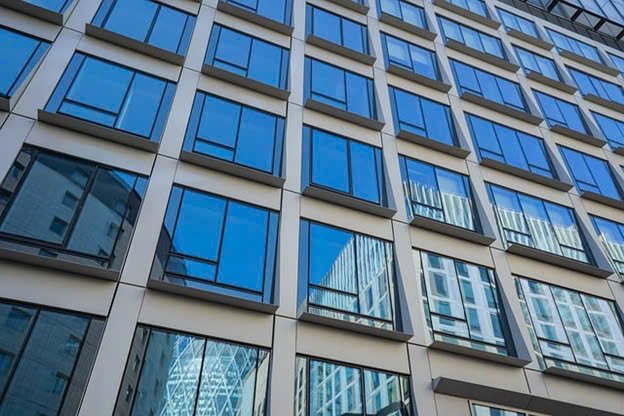Warning Signs Your Metal Building Is Begging for Insulation
Discover the key warning signs that your metal building needs insulation. Improve energy efficiency, reduce moisture issues, and enhance comfort today!
Is your metal building feeling like a sauna in the summer and an icebox in the winter? If so, you might have an insulation problem. Many metal building owners overlook insulation, thinking it’s optional—but the reality is that without it, you’re exposing your structure to temperature extremes, moisture damage, and skyrocketing energy costs.
If you’ve noticed any of these warning signs, it’s time to insulate your metal building before small issues turn into expensive repairs.
1. Extreme Temperature Fluctuations
Does your metal building feel unbearably hot on sunny days and freezing cold when the temperature drops? This is one of the biggest indicators that your building lacks proper insulation. Metal is a great conductor of heat, which means it absorbs and transfers outdoor temperatures directly inside. Without effective insulation for your roof, the inside of your building will reflect whatever is happening outside, making it uncomfortable to work or store goods.
How Insulation Helps:
Insulation acts as a thermal barrier, regulating indoor temperatures so your space stays comfortable year-round. It prevents excessive heat from entering in the summer and keeps warmth from escaping in the winter.
2. High Energy Bills
Are your heating and cooling costs through the roof? If your energy bills seem unusually high, your metal building may be struggling to maintain a stable temperature due to a lack of insulation. When a building isn’t insulated, HVAC systems have to work overtime to keep up with the temperature fluctuations.
How Insulation Helps:
Adding insulation reduces energy consumption by keeping heat out in the summer and trapping warmth in during the winter. This means your HVAC system doesn’t have to work as hard, leading to lower utility bills and a more energy-efficient building.
3. Condensation and Moisture Issues
If you notice water droplets forming on walls or ceilings, or if your metal building has a damp, musty smell, condensation is likely to blame. Over time, excess moisture can lead to mold growth, rust, and even structural damage.
How Insulation Helps:
Proper insulation acts as a moisture barrier, preventing warm air from coming into contact with cold metal surfaces. This stops condensation in its tracks and keeps your building dry and damage-free.
4. Loud Exterior Noise Inside the Building
Do you hear every raindrop, gust of wind, or passing vehicle as if there’s no barrier between you and the outside world? Metal buildings can amplify external sounds, making them noisy and disruptive if they’re not properly insulated.
How Insulation Helps:
Insulation absorbs sound vibrations, reducing noise levels and creating a quieter, more peaceful indoor environment. Whether you’re running a business, working in a workshop, or simply using the building for storage, insulation helps improve overall comfort.
5. Visible Rust or Corrosion on Metal Surfaces
Rust and corrosion are clear signs that moisture is affecting your metal building. Condensation buildup, temperature fluctuations, and high humidity levels accelerate the corrosion process, weakening the structure over time.
How Insulation Helps:
By stabilising indoor temperatures and reducing condensation, insulation helps prevent rust formation. This extends the lifespan of your building and reduces maintenance costs in the long run.
6. Poor Air Quality and Drafts
If your metal building feels drafty or has dust and debris collecting inside, poor insulation could be the culprit. Drafts can make the space uncomfortable, while airborne particles reduce air quality, affecting both workers and stored goods.
How Insulation Helps:
Insulation seals gaps and prevents unwanted airflow, creating a controlled indoor environment. This not only improves air quality but also ensures better temperature regulation.
Choosing an Insulation Company to Buy From
The first step of insulating your metal building is gathering all of the materials you need. Indeed, you need to purchase quality insulation materials from a company that knows what they’re doing. Then, you can benefit from the many advantages of this upgrade.
So, how do you choose an insulation company to buy from? You need to look out for signs they’re trustworthy and invest in quality solutions. Here are some signs you need to look for.
Many Years of Experience
Insulation companies that have been in business for many years know what they’re doing in the industry. Indeed, customers are obviously happy with their products, which means that you can trust them. Therefore, make sure you read about the experience this provider has before purchasing any of their insulation.
Free Samples Available
Companies that are proud of their products want to show them off. In particular, they want to share with you how fantastic they are, which means giving you some for free. Look for a company that offers free samples, which allows you to see the insulation in person. From here, you can inspect the materials to ensure it’s good enough and gain a better impression of what you would be buying.
Great Reviews to Read
Remember that other customers are going to point you in the right direction when it comes to insulation. In other words, they’ll leave great reviews that indicate the fantastic quality you’re purchasing. If you see a lot of five-star and positive reviews, this is a sign they’re trustworthy and can deliver the materials you need to upgrade your building.
Conclusion
If you’ve noticed any of these warning signs in your metal building, don’t wait until the problem gets worse. Insulation is a simple yet effective solution that can help regulate temperature, reduce energy costs, prevent moisture damage, and even keep pests out.
Investing in insulation now will save you from costly repairs and make your metal building a more comfortable, durable, and efficient space. Not sure where to start? Get in touch with a professional insulation expert to assess your building’s needs and find the best solution.

